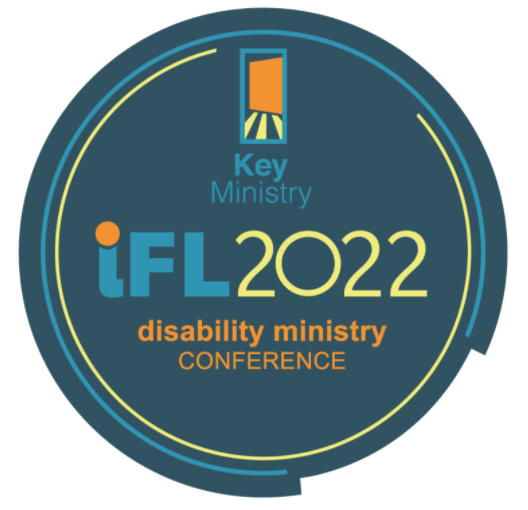Disability ‘allies’ are people who are not necessarily disabled themselves, but who advocate for, journey with, campaign for, or in other ways support disabled people of any age.
Allies (noun): A person or organization that cooperates with or helps another in a particular activity.
The Bible includes real and story-based people who could be viewed as disability allies, among them are Sarah, Aaron, David, ‘The Good Samaritan’, Ananias of Damascus, and Dorcas.
Sarah, The Maternal Ally
There are theories that suggest that Sarah’s son, Isaac, had some kind of lifelong developmental delay or learning disability. Evidence offered points to Isaac being a relatively largely silent figure, of which few achievements are recorded. As a child he was mocked by his half-brother Ishmael which angered Sarah (Genesis 21:8-10), didn’t resist when his father, an old man, was going to sacrifice him (Genesis 22:1-13), later his wife is chosen for him (Genesis 24:1-9) and he lived in his mother’s tent as an adult (Genesis 24:67). Rebecca receives the covenant promise from God about their children, rather than Isaac (Genesis 25:23).
Sarah cared greatly for Isaac, her son who had been a blessing from God in her old age, and if he was indeed disabled then she was certainly a maternal ally. That one of the most well-known characters of the Old Testament, through whom God delivered the great Abrahamic covenant (Genesis 15:4-5), and who was an ancestor of Jesus, might have had additional needs is really significant. That his mother was a strong ally for him is an important part of that story.
Take-away question: How does the way that Isaac was included and cared for by his family, his community, his people and his God challenge and inspire us to do likewise?
Aaron, The Sibling Ally
Aaron, Moses’ brother, supported him when he felt that his speech impediment might prevent him from being effective in sharing the message from God.
‘Moses spoke to the Lord. He said, “Lord, I’ve never been a good speaker. And I haven’t gotten any better since you spoke to me. I don’t speak very well at all.” The Lord said to him, “Who makes human beings able to talk? Who makes them unable to hear or speak? Who makes them able to see? Who makes them blind? It is I, the Lord. Now go. I will help you speak. I will teach you what to say.”
But Moses said, “Lord, please send someone else to do it.” Then the Lord became very angry with Moses. He said, “What about your brother, Aaron the Levite? I know he can speak well. He is already on his way to meet you. He will be glad to see you. Speak to him. Tell him what to say. I will help both of you speak. I will teach you what to do. He will speak to the people for you. He will be like your mouth. And you will be like God to him.’ Exodus 4:10-16
God wanted Moses to deliver the news to the people, but he provided Aaron to help him. Aaron was pleased to see Moses and seemingly agreed to help without any complaint, ensuring that the message his brother had from God was heard. He was an effective sibling ally.
‘The Lord said to Aaron, “Go into the desert to see Moses.” So Aaron greeted Moses at the mountain of God and kissed him. Then Moses told Aaron everything the Lord had sent him to say. Moses also told him about all the signs the Lord had commanded him to do.
Moses and Aaron gathered all the elders of Israel together. Aaron told them everything the Lord had said to Moses. He also performed the signs in the sight of the people.’ Exodus 4:27-30
Take-away question: How does the way that Aaron supported Moses make us think about the sibling allies of disabled young people that we encounter? How can we encourage them as they support their brother or sister, and how can we look out for their well-being, too?
Photo credit: Heart Light Bible, © The Christian Broadcasting Network.
David, The Royal Ally
We first encounter Mephibosheth as a young boy of five. We read that the same day he learned that his father and grandfather were dead, an accident resulted in him having physical disability in his feet: ‘Jonathan, the son of Saul, had a son named Mephibosheth. Both of Mephibosheth’s feet were hurt. He was five years old when the news that Saul and Jonathan had died came from Jezreel. His nurse picked him up and ran. But as she hurried to get away, he fell down. That’s how his feet were hurt.’ 2 Samuel 4:4
In 2 Samuel 9, David inquires if there are any surviving family members of his friend Jonathan. He is informed that there is one, Mephibosheth, “A son of Jonathan is still living. Both of his feet were hurt so that he can’t walk.” David seemingly ignores Mephibosheth’s disability as irrelevant and invites him back into the royal court, to a place of honor, in memory of his friendship with his father, Jonathan. Mephibosheth thereafter ate at the King’s table regularly. He was welcomed because he was wanted, not because of any influence he had.
Take-away question: How does the way that David, the greatest King in Israel’s history, welcomed Mephibosheth into his royal court challenge the way we welcome children and young people with additional needs into church? Are they wanted? Do we give them a place of honor?
The Good Samaritan, The Unexpected Ally
Jesus tells the story of the good Samaritan, an unexpected ally to a man badly beaten almost to the point of death by robbers.
‘Jesus replied, “A man was going down from Jerusalem to Jericho. Robbers attacked him. They stripped off his clothes and beat him. Then they went away, leaving him almost dead. A priest happened to be going down that same road. When he saw the man, he passed by on the other side. A Levite also came by. When he saw the man, he passed by on the other side, too. But a Samaritan came to the place where the man was. When he saw the man, he felt sorry for him. He went to him, poured olive oil and wine on his wounds and bandaged them. Then he put the man on his own donkey. He brought him to an inn and took care of him. The next day he took out two silver coins. He gave them to the owner of the inn. ‘Take care of him,’ he said. ‘When I return, I will pay you back for any extra expense you may have.’ Luke 10:30-35
Other people, including a priest and a Levite—who, in the understanding of his audience, would have been more worthy allies—failed to help the man, who, as he had been left almost dead, would have certainly been temporarily and perhaps even permanently disabled by his injuries. A stranger, and one from a place that the Jews refused contact with, came to the injured man’s aid and was an unexpected ally for him.
Take-away question: Do we look for unexpected opportunities to be an ally to someone? Or are we like the priest or the Levite, crossing by and hoping someone else will help?
Ananias of Damascus, The Reluctant Ally
Saul (later named Paul) was made blind by his encounter with Jesus on the road to Damascus, a road he was taking to go and persecute the Christians there. Those traveling with Saul took him on to Damascus, where he encountered Ananias, a reluctant ally.
‘In Damascus there was a believer named Ananias. The Lord called out to him in a vision.“Ananias!” he said. “Yes, Lord,” he answered. The Lord told him,“Go to the house of Judas on Straight Street. Ask for a man from Tarsus named Saul. He is praying. In a vision Saul has seen a man come and place his hands on him. That man’s name is Ananias. In the vision, Ananias placed his hands on Saul so he could see again.”
“Lord,” Ananias answered, “I’ve heard many reports about this man. They say he has done great harm to your holy people in Jerusalem. Now he has come here to arrest all those who worship you. The chief priests have given him authority to do this.” But the Lord said to Ananias, “Go! I have chosen this man to work for me. He will announce my name to the Gentiles and to their kings. He will also announce my name to the people of Israel. I will show him how much he must suffer for me.”
Then Ananias went to the house and entered it. He placed his hands on Saul. “Brother Saul,” he said, “you saw the Lord Jesus. He appeared to you on the road as you were coming here. He has sent me so that you will be able to see again. You will be filled with the Holy Spirit.” Right away something like scales fell from Saul’s eyes. And he could see again. He got up and was baptized. After eating some food, he got his strength back.’ Acts 9:10-19
Take-away question: Can we sometimes be afraid to help a disabled person? Maybe we are reluctant to get involved, frightened of what might happen? How does the story of Saul and Ananias challenge us to think differently?
Dorcas, The Generous Ally
Dorcas (also called Tabitha) did much good work for the poor in Joppa. Among the poorest of that time would have been disabled people, so it is likely that Dorcas was a generous ally to many disabled people, among other things providing them with clothing.
In this passage we see that Dorcas dies, but Peter raises her back to life when he sees all that she has been doing to help others.
‘In Joppa there was a believer named Tabitha. Her name in the Greek language is Dorcas. She was always doing good and helping poor people. About that time she became sick and died. Her body was washed and placed in a room upstairs. Lydda was near Joppa. The believers heard that Peter was in Lydda. So they sent two men to him. They begged him, “Please come at once!” Peter went with them. When he arrived, he was taken upstairs to the room. All the widows stood around him crying. They showed him the robes and other clothes Dorcas had made before she died.
Peter sent them all out of the room. Then he got down on his knees and prayed. He turned toward the dead woman. He said, “Tabitha, get up.” She opened her eyes. When she saw Peter, she sat up. He took her by the hand and helped her to her feet. Then he called the believers and especially the widows. He brought her to them. They saw that she was alive. This became known all over Joppa. Many people believed in the Lord.’ Acts 9:36-42
Take-away question: How do we generously support disabled people? Maybe by advocating and campaigning, being an ally, if appropriate providing practical support, too?
We’ve looked, perhaps with a sprinkling of artistic license along the way, at six possible ‘allies’ to disabled people in the Bible. There will be others and it would be good to look for them and share their stories, too.
Most importantly, though, what do these stories do to challenge and teach us about how we can be an ally to disabled people? Maybe you’ve seen yourself in one of these stories; how are you going to respond?
Blessings,
Mark
Mark Arnold is the Additional Needs Ministry Director for Urban Saints Church, Luton, Bedfordshire, UK. Follow his writing at https://theadditionalneedsblogfather.com.





